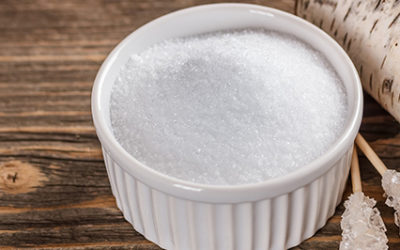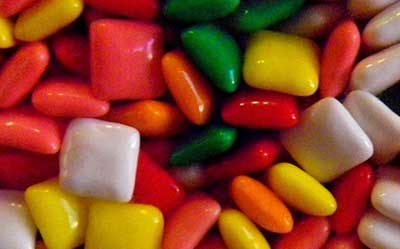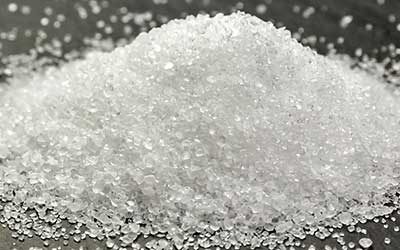Let’s first talk about what xylitol is. Xylitol is a sugar alcohol. The suffix “itol” is how you can most often identify a sugar alcohol. Ironically, sugar alcohols are neither sugar nor alcohol. They are basically water-soluble solids found in plants and berries whose carbohydrates are altered through a chemical process. These common sugar alcohols like sorbitol, maltitol, and erythritol are derived from cornstarch.
Xylitol is actually manufactured from birch wood, corncobs, and the stalk residue from sugar cane. Sugar alcohols are low calorie sweeteners used instead of sugar in many foods.
So, is Xylitol Good for Diabetics?
The simple answer is: Yes. Xylitol (and other sugar alcohols) are natural. They are not artificial sweeteners like Splenda or Aspartame. The body also breaks them down rather than just letting them pass through.
Diabetes is the inability to handle glucose, which is the body’s primary energy food, but which we get altogether too, too, much of in our diets. Anything that allows us to decrease the amount of glucose (found in processed starchy foods , table sugar, and especially in our high-fructose corn syrup sweetened soft drinks) in our diets helps us cope better with diabetes. A recent study using xylitol on diabetic rats showed that it helped to normalize all of the laboratory markers for that condition.
Xylitol sweeteners are available for purchase at most stores, and are popular in health food stores. These products can be used the same as typical table sugar. Xylitol reacts the same as table sugar in baking, cooking, or dissolving in liquids. The only place xylitol should not be substituted is for recipes that require a hard crack, like a crème brulee.
So what are the Downfalls of Sugar Alcohols?
Sugar alcohols, like xylitol, are not calorie free. Xylitol, however, does contain 40% fewer calories than table sugar. Sugar alcohols also can cause digestive discomfort, including bloating, gas, and a laxative effect, for many people when eating too much. And dogs can’t tell it’s not sugar so they respond with more insulin and the drop in sugar that results can be lethal. KEEP XYLITOL AWAY FROM YOUR DOGS.
If you have never consumed a sugar alcohol before, it’s important to start in moderation. Many people never have a problem with using these sweeteners, but others are much more sensitive. Typically up to 20 grams per day is fine for individuals, but again, we recommend starting in moderation to see how xylitol or any other sugar alcohol effects your digestion.
Related Articles
Xylitol Makes More Butyrate And More!
xylitol increase butyrate, decreases inflammation and propionic acid, which may help autism
Why Xylitol Works
xylitol provides both oral and nasal defenses by its action on the bacteria that cause our problems, and by enhancing our defenses in those areas.
Best Sugar Alternatives for Tea?
When you get up in the morning and are dragging with no energy, you reach for a cup of tea or coffee. While there are health benefits to drinking tea or coffee in the morning, you don’t want to negate them with adding a couple spoons of sugar...
Where to Buy Xylitol Gum?
How often do you chew gum? It’s a habit that a lot of people do multiple times a day. Chewing gum is often a stress reliever, and can help curb cravings. It’s also the perfect solution for after meals, leaving your mouth feeling and smelling...
Xylitol vs Stevia? What’s the Better Sugar Alternative?
A common question that's asked is, Xylitol vs Stevia? What should you choose for a sugar alternative? What is Stevia? Stevia comes from the Stevia rebaudiana plant, which is native to Paraguay, but can now be found around the world. The...
3 Desserts that Actually Help You Avoid the Dentist
Sugar Free Dessert Recipes That Can Help You Avoid the Dentist Just because you're living a sugar free lifestyle doesn't mean you have to ignore your sweet tooth and give up great tasting recipes. Find more scrumptious sugar free desserts and...











